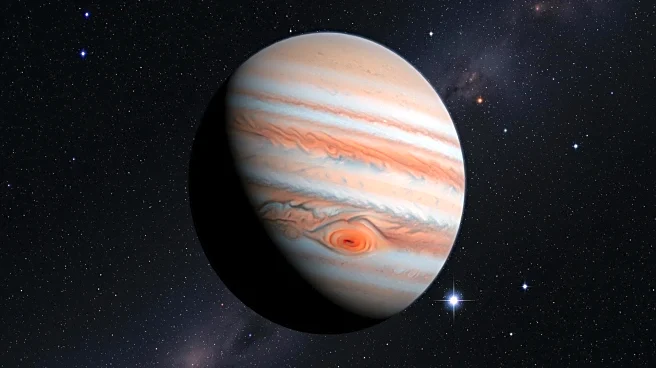What's Happening?
A new study led by scientists at Rice University suggests that Jupiter played a crucial role in shaping the early solar system and preventing Earth from spiraling into the sun. The research indicates that Jupiter's
early growth created gravitational ripples that carved out gaps in the solar system's protoplanetary disk. These gaps acted as barriers, preventing the inward flow of gas and dust that could have otherwise led to the destruction of the inner planets, including Earth. The study used computer simulations to model how Jupiter's gravity influenced the formation of rocky planets and preserved distinct isotopic signatures found in meteorites.
Why It's Important?
The findings of this study provide significant insights into the formation and evolution of the solar system. Understanding Jupiter's influence on the early solar system helps explain the current arrangement of planets and the preservation of isotopic signatures in meteorites. This research could have broader implications for the study of exoplanetary systems, as it suggests that giant planets like Jupiter play a critical role in shaping their surroundings. The study also highlights the importance of gravitational interactions in planetary formation, which could inform future research on the dynamics of other star systems.
Beyond the Headlines
The study's implications extend beyond the solar system, as similar gravitational interactions may occur in other planetary systems. Observations of young star systems with the Atacama Large Millimeter/submillimeter Array (ALMA) have shown similar ring-like structures, supporting the idea that giant planets influence their environments during formation. This research underscores the interconnectedness of planetary formation processes and the potential for discovering new insights into the origins of other planetary systems.









